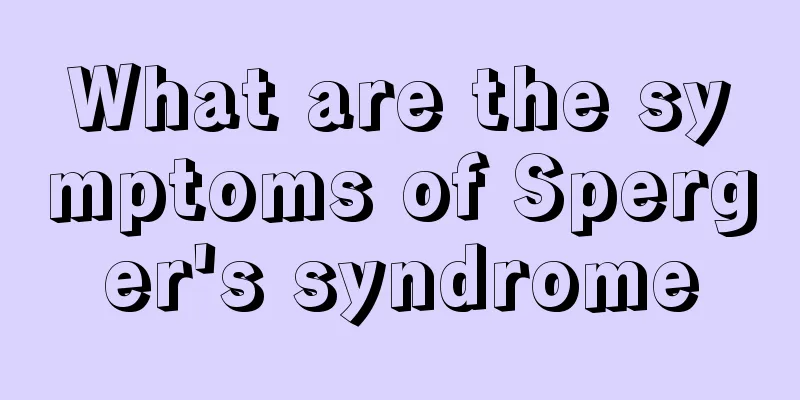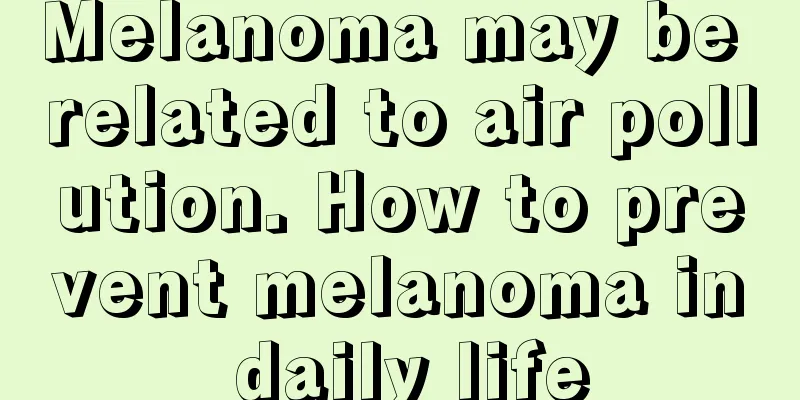A brief discussion on how to prevent nasopharyngeal cancer

|
In recent years, nasopharyngeal cancer has become one of the major diseases that endangers society and human health, and it has brought great pain and distress to humans. In order to reduce the incidence of nasopharyngeal cancer, we humans should master some basic knowledge about preventing nasopharyngeal cancer: 1. Pay attention to climate changes, prevent colds, keep your nose and throat clean, and avoid viral infections. 2. Try to avoid breathing in harmful fumes, such as kerosene lamp gas, insecticide aerosols, etc., and actively quit smoking and drinking. 3. If you have nasopharyngeal diseases, you should seek medical treatment as soon as possible. If you find blood in your nasal discharge or blood in your nasal discharge after sneezing, or if you have unexplained swollen lymph nodes in the neck or fluid in the middle ear, you should have a detailed nasopharyngeal examination in time. Lifestyle People with nasopharyngeal cancer should avoid physical overwork: heavy physical labor, staying up late, excessive physical exercise, etc., which can cause the body's internal environment to become unbalanced, reduce resistance, and promote cancer recurrence or metastasis. During treatment, attention should be paid to local hygiene, gargle several times a day, and perform nasopharyngeal irrigation when necessary. Avoid tooth extraction within one year. Diet The diet should be balanced, with more vegetables and fruits, less or no salted fish, pickles, smoked meat, cured meat and other foods containing nitrosamines. Spicy and dry foods and excessive drinking are not suitable. Especially for patients with nasopharyngeal cancer during radiotherapy and chemotherapy, dry mouth and throat, loss of appetite, nausea and vomiting are common. Traditional Chinese medicine believes that this is due to deficiency of qi and yin, and excessive heat and toxicity. Spicy and dry foods should be avoided. The diet should be light, and foods that are easy to digest, nutritious and delicious should be selected. Eating salted fish frequently may lead to nasopharyngeal cancer According to scientific analysis, rotten salted fish is a food that directly causes cancer, especially nasopharyngeal cancer. Among people aged 15 to 40 in southern China, nasopharyngeal cancer is more common. Participants of the American Association for the Advancement of Science clearly pointed out during a meeting that salted fish and nasopharyngeal cancer are closely related. Hong Kong biochemists have isolated nitrosamines from salted fish. According to modern scientific research, nitrosamines have been proven to be serious carcinogens. Nitrosamines, carcinogens in rotten salted fish, are produced before or during the process of salting and drying. If you often eat this kind of rotten salted fish, you are prone to nasopharyngeal cancer and other cancers. The above is some common sense about nasopharyngeal cancer prevention. Expert Tip: If you have symptoms of disease, do not delay diagnosis and go to a regular hospital for treatment in time to avoid delaying the disease and causing serious consequences. If you have other questions, please consult our online experts or call for consultation. Nasopharyngeal cancer http://www..com.cn/zhongliu/bya/ |
<<: How does Chinese medicine treat pancreatic cancer
>>: What is the nursing method during the treatment of nasopharyngeal carcinoma?
Recommend
What are the indicators of diabetes?
There are actually several detection indicators f...
Can't see clearly at night
At night, our vision is definitely not as clear a...
Transforaminal endoscopic surgery
I believe that many people are not clear about th...
How should hepatitis B be treated with antiviral drugs
Hepatitis B is a very scary infectious disease in...
The pimples turned into hard lumps without squeezing
Many people get acne on their faces. For some peo...
The most important health care measures for rectal cancer
Rectal cancer is very common in daily life. You s...
What to do if your child has toothache
As the saying goes: toothache is not a disease, b...
How to treat gastric cancer in its early stages?
Generally speaking, early-stage gastric cancer is...
What should I do if the peppers are irritating to my eyes?
Health care must start from our daily life. If we...
Practical self-treatment for chronic nephritis?
Nephritis is a disease with a very high incidence...
How to do a laryngoscopy
The throat is an area that we use every day in ou...
Is back pain caused by kidney stones?
Although the feeling of lower back pain often occ...
How can I reduce swelling on my face quickly?
I believe many people have had this experience: w...
My throat feels uncomfortable after eating betel nut
I believe many people have eaten betel nut in the...
How to effectively treat chronic rheumatism?
Old rheumatism is not rheumatism in the elderly, ...









